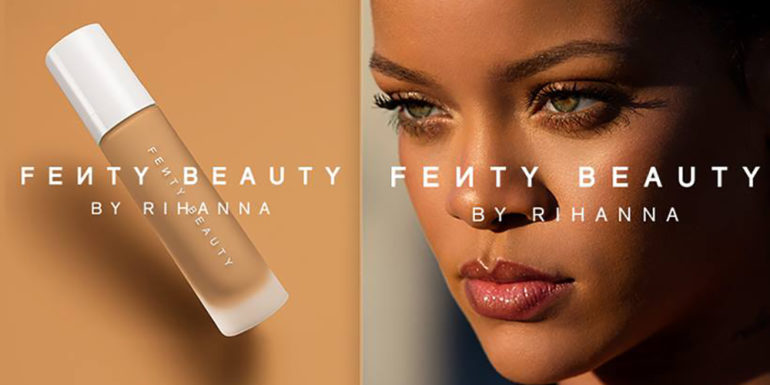Inclusivity, equality and diversity are being emphasised and preached in workplaces all over the world, but is it being transferred through to product development? Here, we look at how beauty brands are increasing their business potential by promoting inclusivity.
The global beauty market is reportedly worth over 450 billion US dollars and thanks to social media, it’s growing by the day. Beauty bloggers and influencers are among the most popular social media stars, using Instagram and YouTube to give makeup tutorials and product reviews to thousands – sometimes millions – of followers. They can use their huge platforms to endorse brands and products, or even criticise them for any number of issues, including poor ethics and below average product quality.
One issue currently being discussed in the ‘beautysphere’ is inclusivity. Whilst the majority of makeup brands have a selection of foundation and concealer shades ranging from light to dark, most have a larger selection of lighter shades than darker. This means customers with darker skin tones still struggle to find the perfect foundation shade from many brands. Many beauty bloggers have voiced their opinions and documented their struggles regarding darker foundations. In an interview with Nerisha Penrose for Elle last month, New York influencer, Armanda Tounghui – aka Glow Princess – said she feels like the “only reason companies have tried to put out deeper shades is because us black women have been vocal”.
Another influencer whose honest and often ruthless reviews of beauty and fashion products have gained her over 2.5 million YouTube subscribers is Patricia Bright. In an interview with Siraad Dirshe for Essence, Bright discusses how beauty brands often disregard undertones for black skin when developing foundation ranges. Whilst shades for lighter skin tones often have ‘warm’ or ‘cool’ undertones, she says a mistake made by brands when developing shades for black skin is the assumption that “every brown is the same shade of brown” and it’s “important to work out if you’re red, yellow, or neutral”.

This is why the launch of Rihanna’s beauty brand Fenty Beauty was hailed as ground-breaking for the beauty industry. Fenty Pro Filt’r foundation launched with 40 shades, with an equal proportion of shades for lighter skin and darker skin tones.
Since its launch, Fenty Beauty seems to have kick-started a revolution in the ‘beautysphere’. With more and more influencers singing their praise of the brand – including Patricia Bright – it seems other brands have realised they need to up their game regarding shade diversity. During Fenty Beauty’s first year of business, brands including Dior, Revlon, Covergirl and Tarte have increased their range of foundation shades in order to compete with the brand’s success.
However, it seems unbelievable that brands needed a new competitor to recognise their own need for inclusivity when the demand was there all along. It raises the question if the demand for darker foundation shades has been present, why has the beauty industry ignored it for so long? Hopefully, the Fenty Effect has helped beauty businesses to recognise that customer demands are key to profitability, and that all brands should aspire to be as inclusive and forward thinking as Fenty Beauty.
Hollie Tansey

